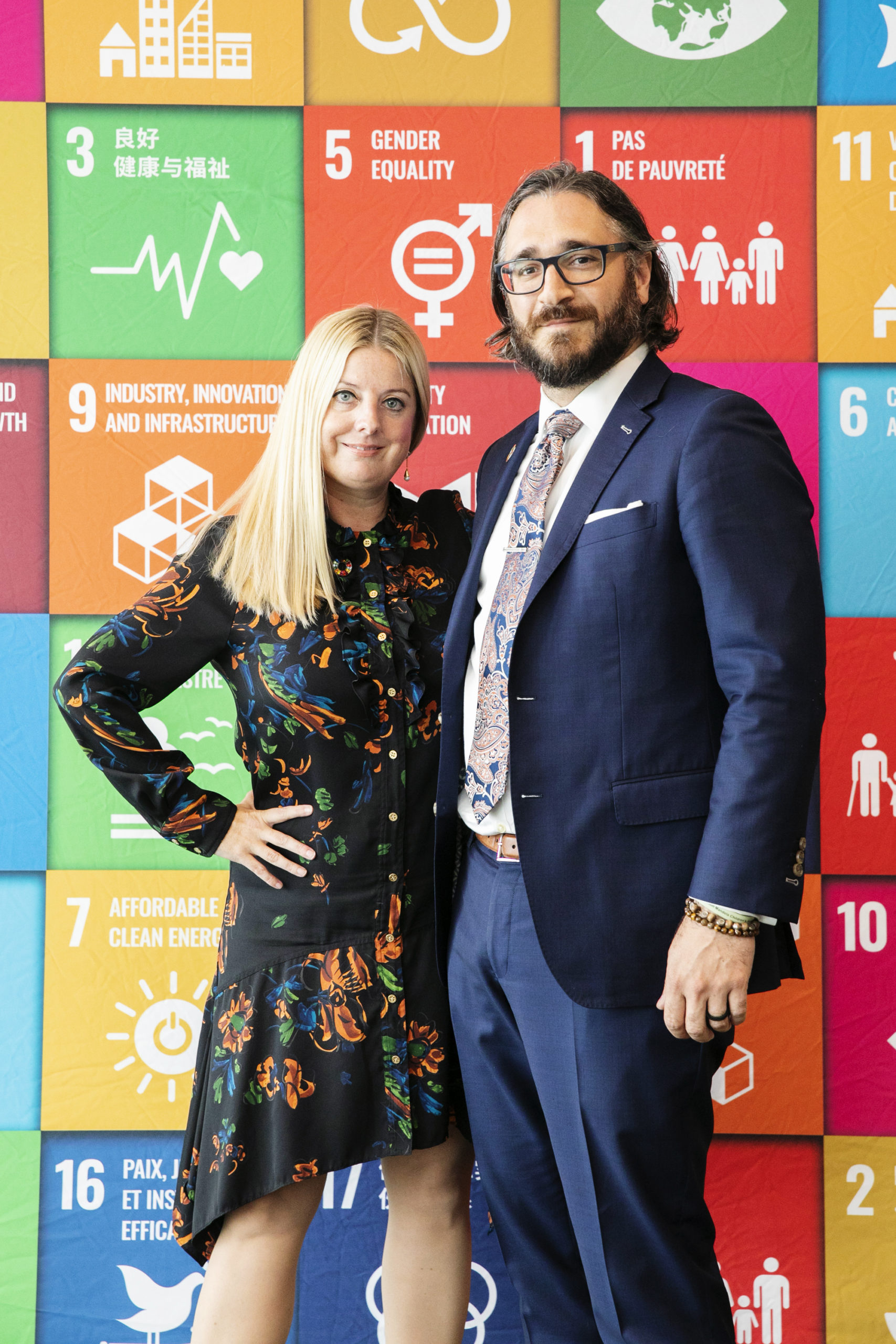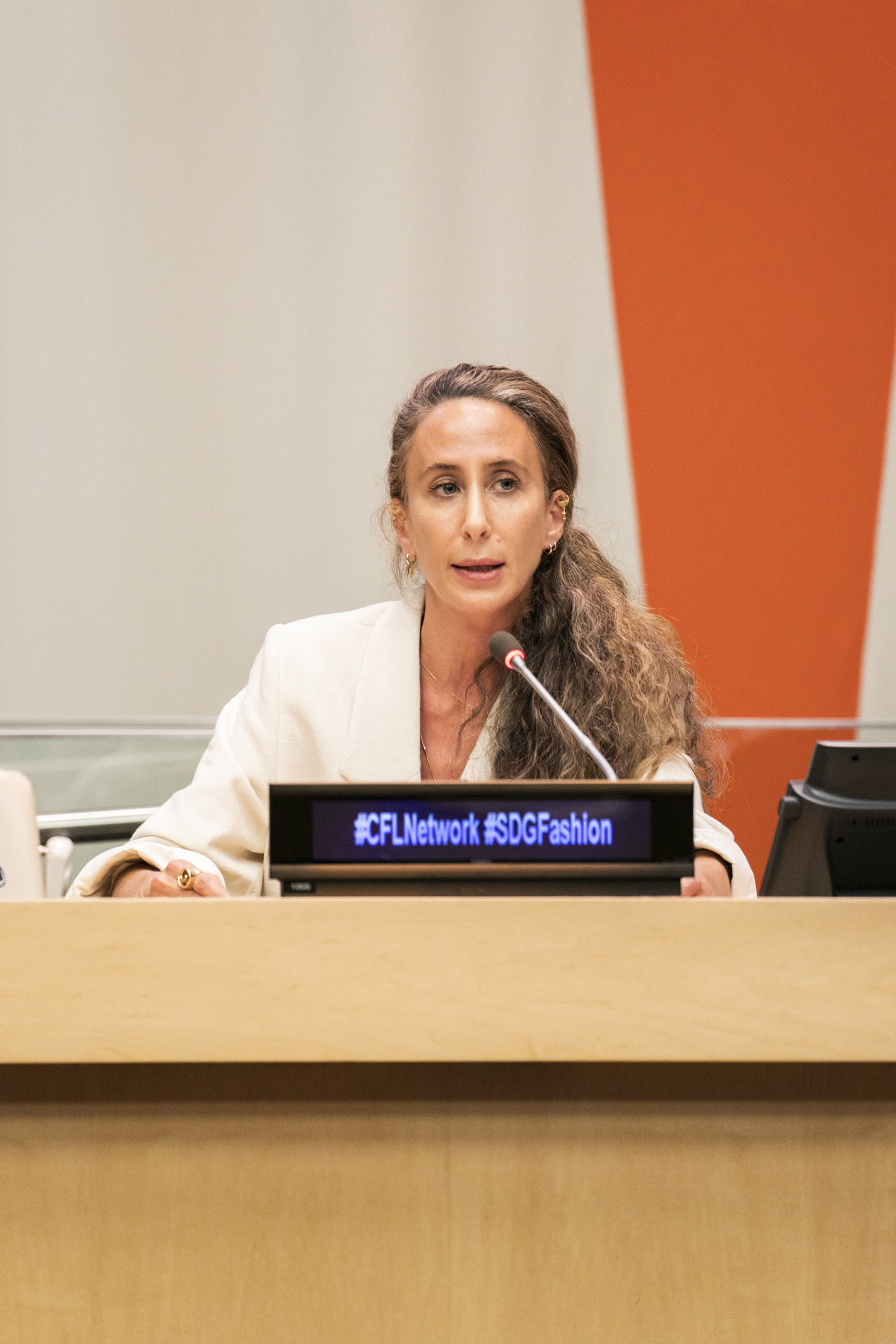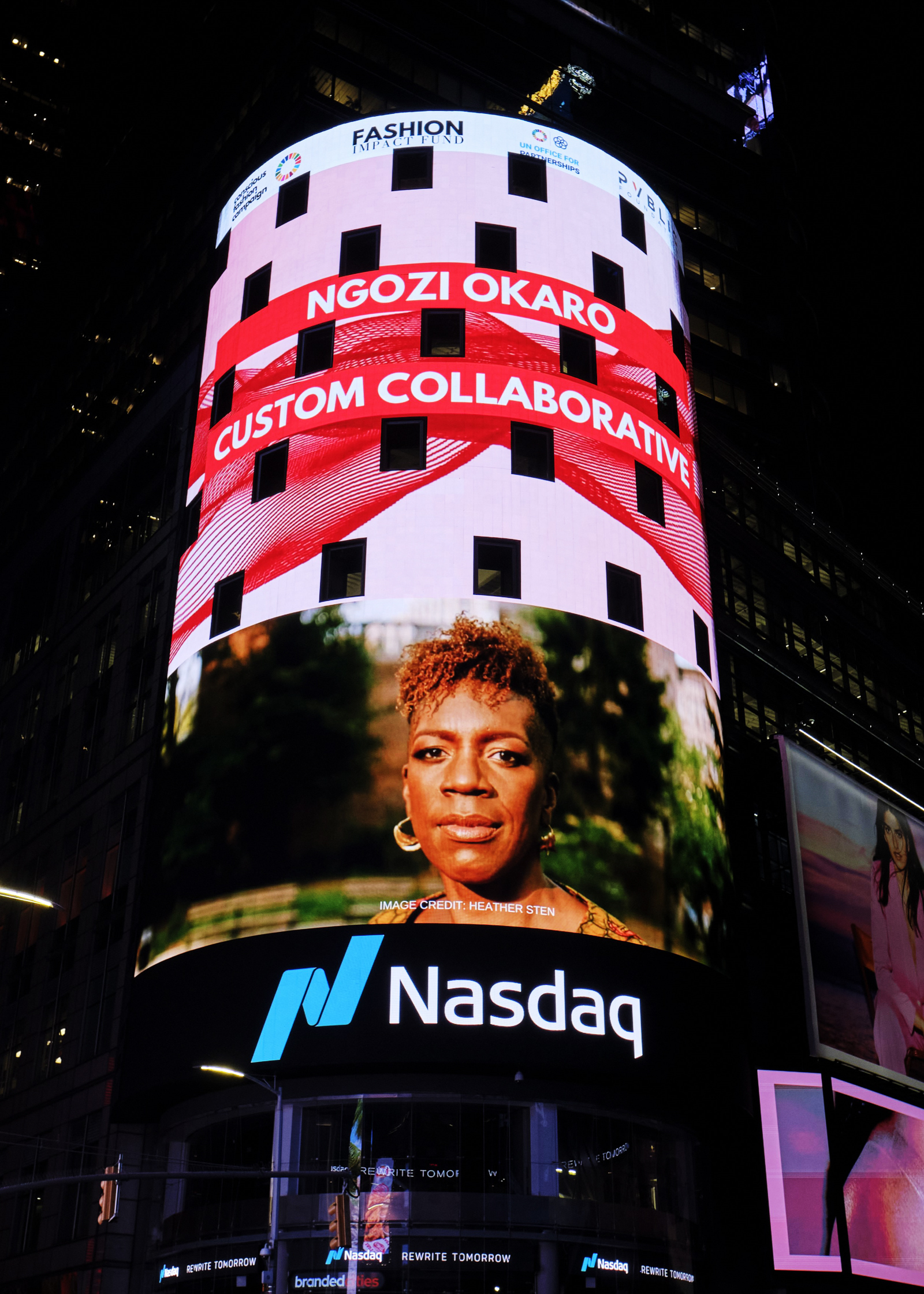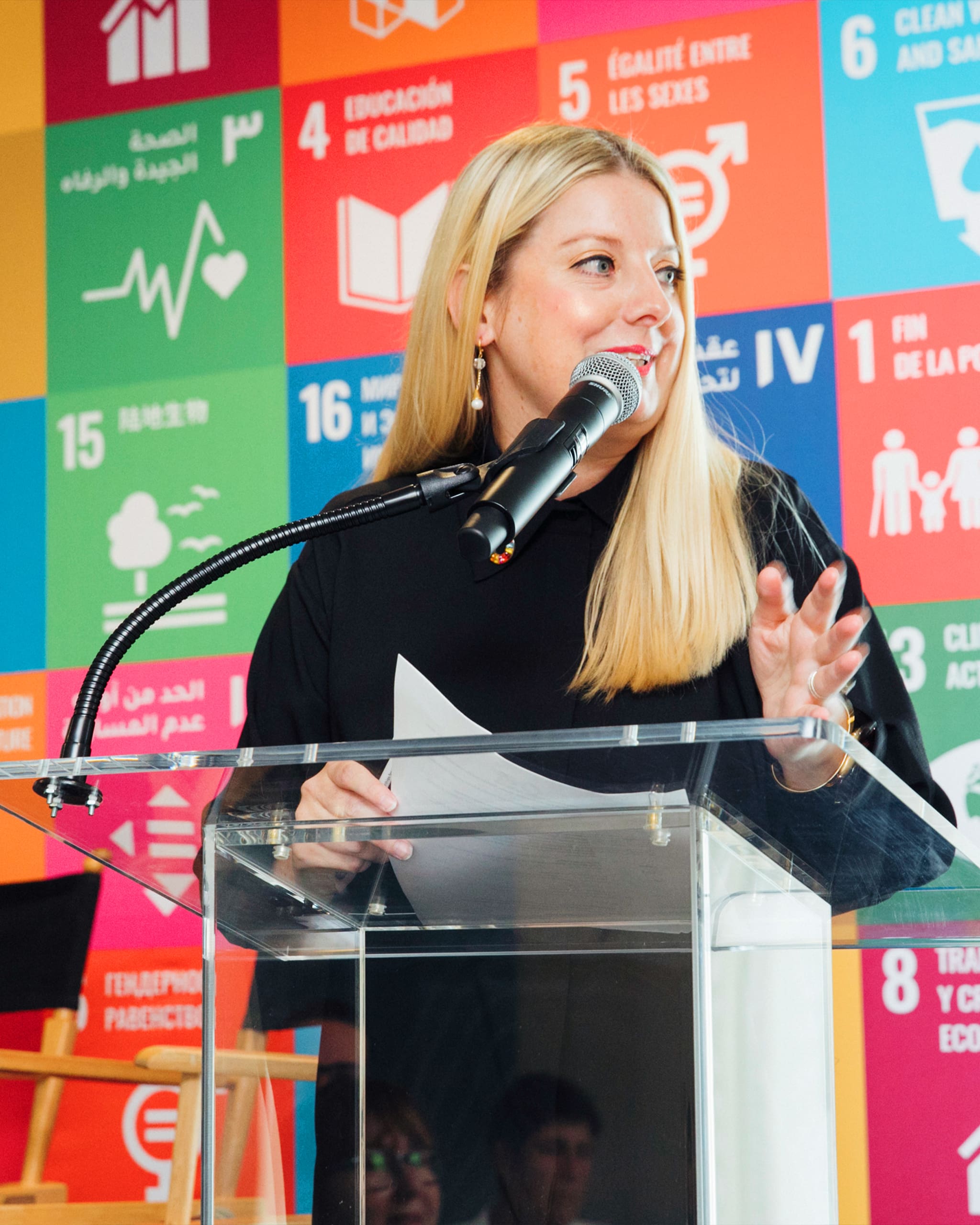Kerry Bannigan, Executive Director, Fashion Impact Fund. Lisa Kato
The Fashion Impact Fund is ensuring that the future of fashion is female.
I first met Kerry Bannigan, founder and executive director of the Fashion Impact Fund, at an event in Central Saint Martins in London.
Her thoughts were inspiring, touching on brands that put impact at the forefront of their businesses and how we can all support them.
The Fashion Impact Fund is one such initiative. It has been established to support women in fashion, to help not only make those fashion dreams a reality, but to pave the way for a better industry for all.
Kerry and I have met and chatted many times since then about the powerful role that media, retailers, and customers have in driving much needed change in the fashion industry.
In fact, Kerry was one of the last few people that I met with in person before the pandemic forced countries to go into lockdown. At that time, we were discussing the intersecting issues of climate change, social justice, women empowerment, and how they all connect to the clothes we wear every day.
Since then, the urgency of those issues has only accelerated and the work of Kerry and her team at the Fashion Impact Fund has never been more vital.

The Fashion Impact Fund supports female founders in the fashion industry that are leading sustainable solutions. The charitable fund provides grants to women-led education, media, and workforce development programs from all over the world that are advancing change in the fashion industry.
This means that Filipinas in the local fashion industry can also benefit from the organization’s work. As Kerry shares, “The fund is committed to accelerating women’s economic empowerment and leadership as female founders trailblaze initiatives that are addressing the critical issues of our time and collectively transforming communities for people and planet.”
Fashion is among the most environmentally destructive industries in the world and the fact is, climate change is not some future event. We can just look out of our windows to see it happening with the unpredictable weather patterns, extreme climate conditions, and even the natural disasters that have been occurring in so many different parts of the world.
Unfortunately, we’ve seen and experienced the Philippines devastatingly impacted by this. The good news is that there are individuals who are using their platforms and businesses to combat the negative impact of the fashion industry and instead, use it as a force for good. The Fashion Impact Fund is supporting these agents of change and is working with the United Nations in order to hasten progress, in line with the UN’s Sustainable Development Goals.
Kerry says they are committed to engaging the global fashion industry as a driving force in the advancement of the Sustainable Development Goals (SDGs); particularly in relation to gender equality, climate action, and responsible consumption and production.
“Our grant recipients are transforming fashion with the SDGs as their guiding framework; prioritizing gender equality and women being fairly represented throughout the industry value chain,” she explains further.
The Fashion Impact Fund is committed to supporting women in particular because women are not only disproportionately affected by the consequences of climate change and social injustice, but are also disproportionately represented in leadership roles throughout the fashion industry. Among the organization’s flagship programs is the Conscious Fashion Campaign, in collaboration with the UN Office for Partnerships and the PVBLIC Foundation.
The program has featured female founders from various backgrounds in digital billboards throughout New York City, in order to amplify their visibility and increase media representation of women leading the fashion sector toward a sustainable future. So crucial is the Conscious Fashion Campaign and fashion’s role in driving cultural change that it was among the initiatives which Kerry highlighted in a private meeting with Pope Francis and 12 other global leaders.

It’s evident that collaboration and synergies among global agendas are required in order for true progress to transpire.
“Fashion holds the unique ability to connect suppliers, designers, corporations, and consumers all over the world,” Kerry says. “With this connectivity, the influential industry has the power to shift the current situation and achieve transformational change, including fair wages, safe working environments, non-toxic processes, and waste reduction.”
In line with this, another key initiative of the Fashion Impact Fund is the United Nations Conscious Fashion and Lifestyle Network. This serves as a bridge for collaboration among industry stakeholders, media, governments, and the UN system in order to implement the SDGs and forge a path toward a more sustainable and ethical future. Members of the Philippine fashion industry who share a sustainable outlook are encouraged to join the network because, as
“Crucial action from all regions of the fashion industry is imperative to evolve an ecosystem that values people and planet,” Kerry stresses.
Outside of the fashion industry, anyone who wears clothes has the power to effect change. We can all be a part of the solution by rewearing our clothes, by purchasing from brands that have proven to be genuinely sustainable, by supporting female-founders, and also by donating to effective organizations, such as the Fashion Impact Fund. No action is inconsequential and no donation is insignificant, as these have the power to create a ripple effect and lasting impact.
To empower shoppers and encourage conscious consumption, the Fashion Impact Fund has launched the #FASHIONGIVES campaign, as part of the global generosity GivingTuesday movement.
“For GivingTuesday 2022,” Kerry shares, “the Fashion Impact Fund is partnering with brands and retailers to donate a percentage of sales proceeds to our charitable organization.”
Shoppers can purchase from these partners on GivingTuesday, the 29th of November, to donate a portion of their purchase to and participate in the Fashion Impact Fund’s initiatives.
Many of the little girls who dreamt of being part of the fashion industry have grown into founders, designers, models, and activists who are now advocating for and working toward systemic changes in the fashion sphere that will lead to a fair, inclusive, and regenerative world.
As Kerry explains, these agents of change often represent vulnerable and marginalized populations.
“Supporting women and increasing access to finance for women entrepreneurs in the fashion sector allows them to progress the fashion sector’s treatment of women and deliver on livable wages, occupational promotions, educational opportunities, and safe working conditions.” By supporting women, we can fashion change that will lead to a better world for all.

